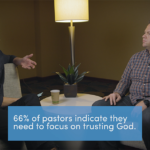
Five hundred years later, most Americans can tell you some facts about the Reformation. Just don’t ask about the doctrines behind the event.
By Aaron Earls
As the 500th anniversary nears, most Americans could tell you some facts about the Protestant Reformation. Just don’t ask them about the doctrines behind the event.
Almost 3 in 4 Americans (72 percent) say they are familiar with the term “Protestant,” according to a study from Pew Research.
Agnostics (87 percent), atheists (83 percent), white mainline Protestants (81 percent), and white evangelicals (80 percent) are most likely to know the term.
Many Americans define being a Protestant as a Christian who’s not Catholic. In an open-ended question, 32 percent said some variation of “not Catholic” and 12 percent said it was some type of Christianity.
When asked what term refers to the historical period in which Protestants broke away from the Catholic Church, 65 percent of Americans correctly chose “the Reformation” out of four options.
Fewer than 1 in 5 (18 percent) said the Great Crusade. Even fewer said the Great Schism (6 percent), the French Revolution (5 percent), or that they were not sure (7 percent).
Three-fourths of evangelicals (75 percent) knew the correct answer—the largest percentage of any Christian group.
At 85 percent, atheists were the group most likely to say Reformation. Catholics (57 percent) and those who say they are “nothing in particular” (54 percent) were the least likely to know.
As for as knowing the person who inspired the Reformation, 67 percent of Americans correctly said Martin Luther out of three options.
Few said John Wesley (16 percent), Thomas Aquinas (10 percent), or that they were not sure (6 percent).
Black Protestants (77 percent) and other minority Protestants (79 percent) were most likely to correctly identify Luther. White evangelicals (67 percent) and Catholics (62 percent) were the Christian groups least likely to know.
Meanwhile, few Americans (23 percent) know that only Protestants traditionally teach salvation comes through faith alone.
More (45 percent) believe both Protestants and Catholics teach the doctrine known as sola fide. Fewer say neither teaches it (19 percent) or only Catholics teach it (11 percent).
Only among white evangelicals did most say it was an exclusively Protestant doctrine (42 percent) and not one taught by both (39 percent).
A recent Lifeway Research study found the confusion around salvation extends to what Americans actually believe.
Three-quarters (77 percent) say people must contribute their own effort for personal salvation. And more than half (52 percent) say good deeds help someone earn a spot in heaven.
Yet 60 percent agree that Jesus’ death on the cross is the only sacrifice that could remove the penalty of their sin.
Analysis of the research found those with evangelical beliefs, as defined by Lifeway Research and the National Association of Evangelicals, were more likely to hold traditional Protestant positions on salvation than Americans at large.
And among evangelicals, those who attend church at least once a month are more likely still to believe sole fide.
Only a third of regularly churchgoing evangelicals (36 percent) believe good deeds can partly contribute to earning a place in heaven, a belief held by 48 percent of evangelicals who attend less frequently.










